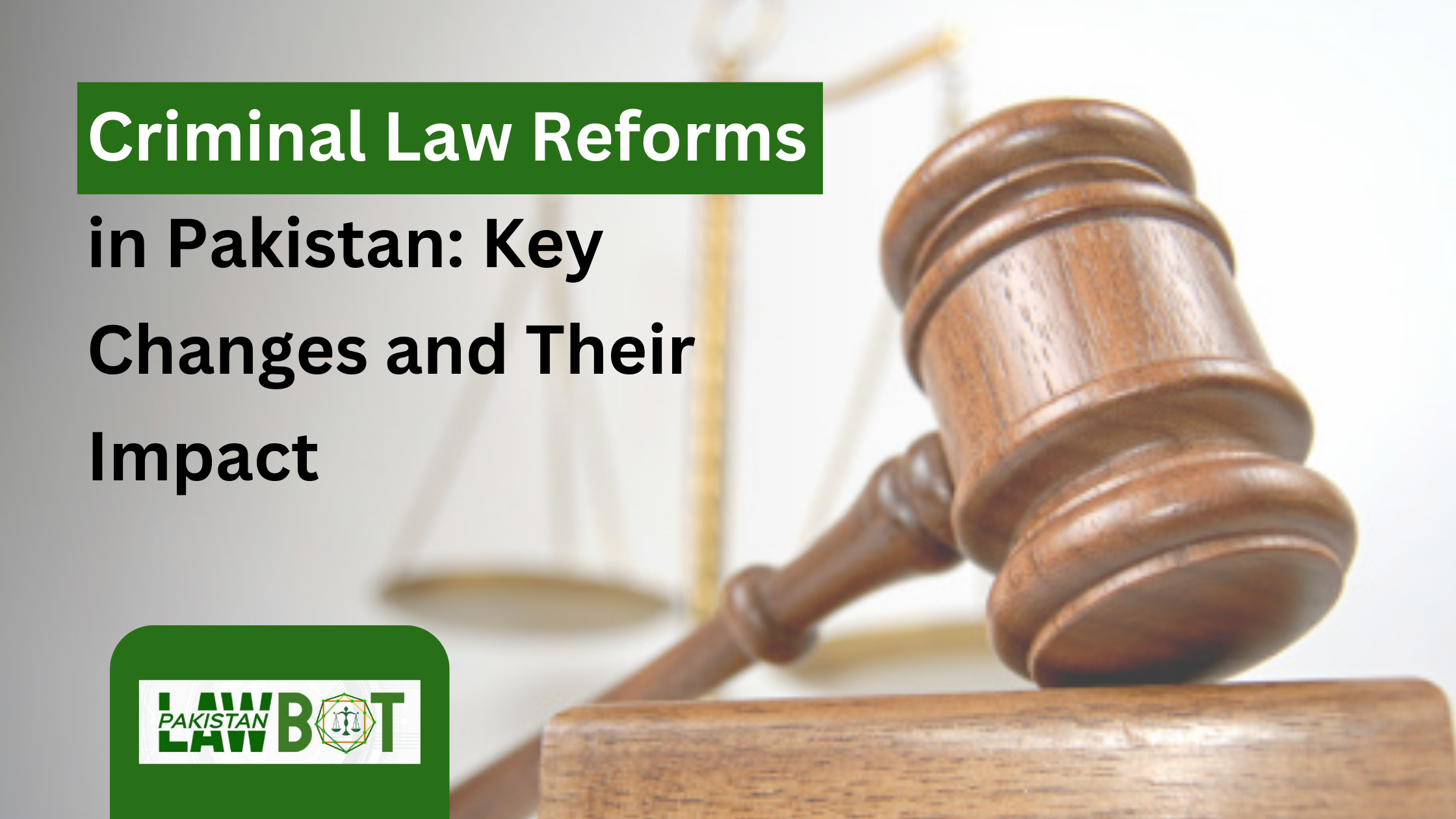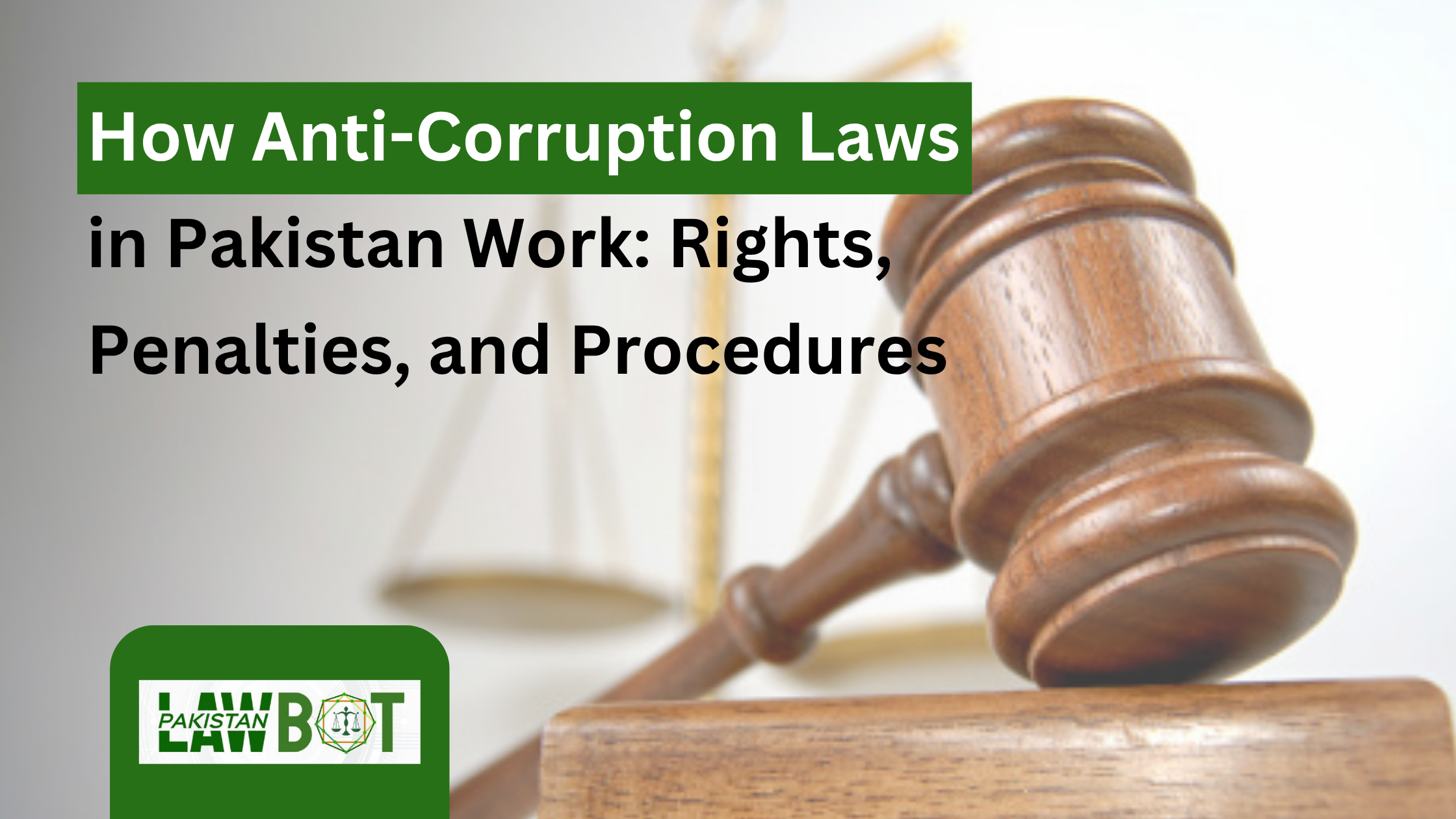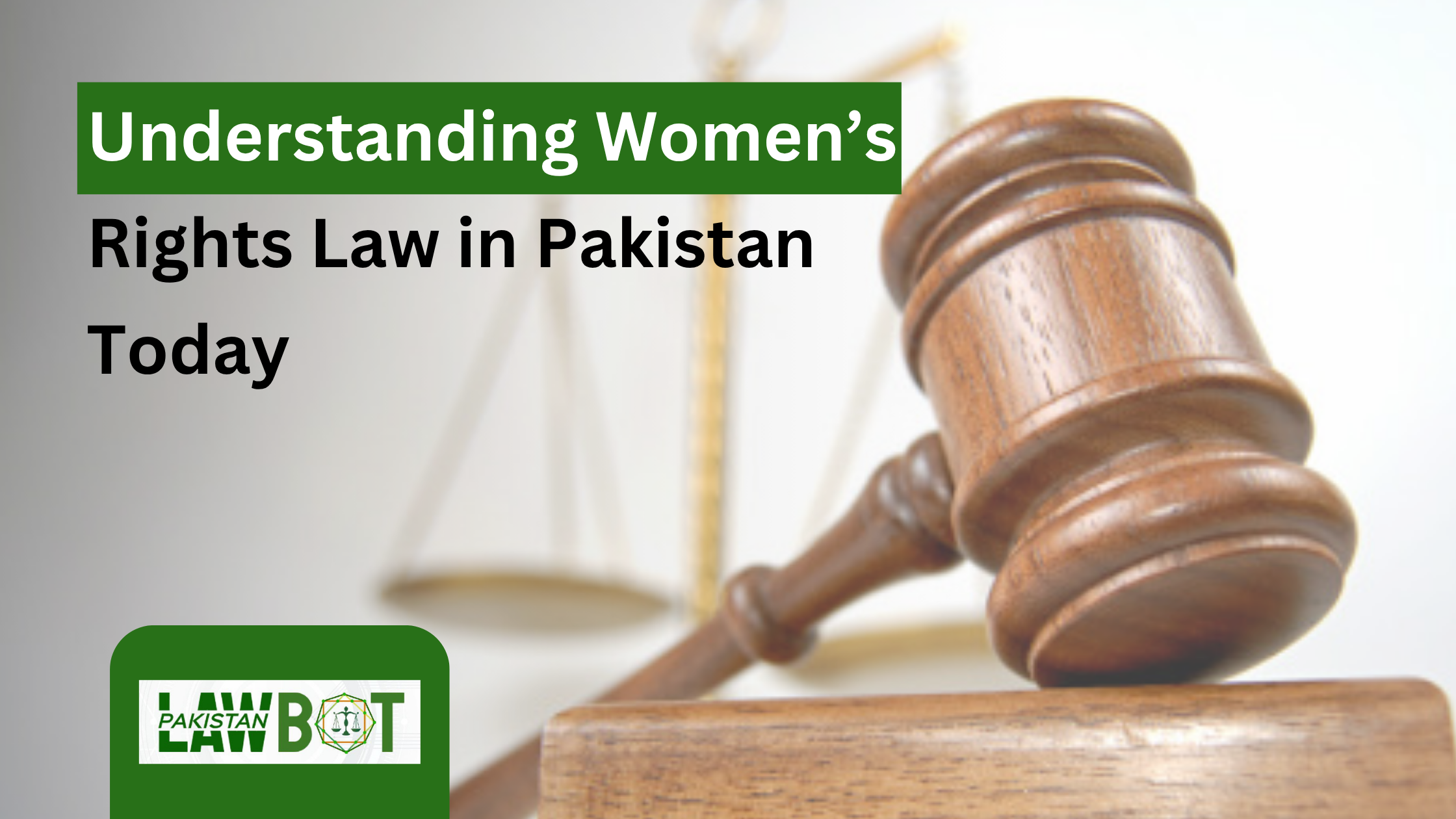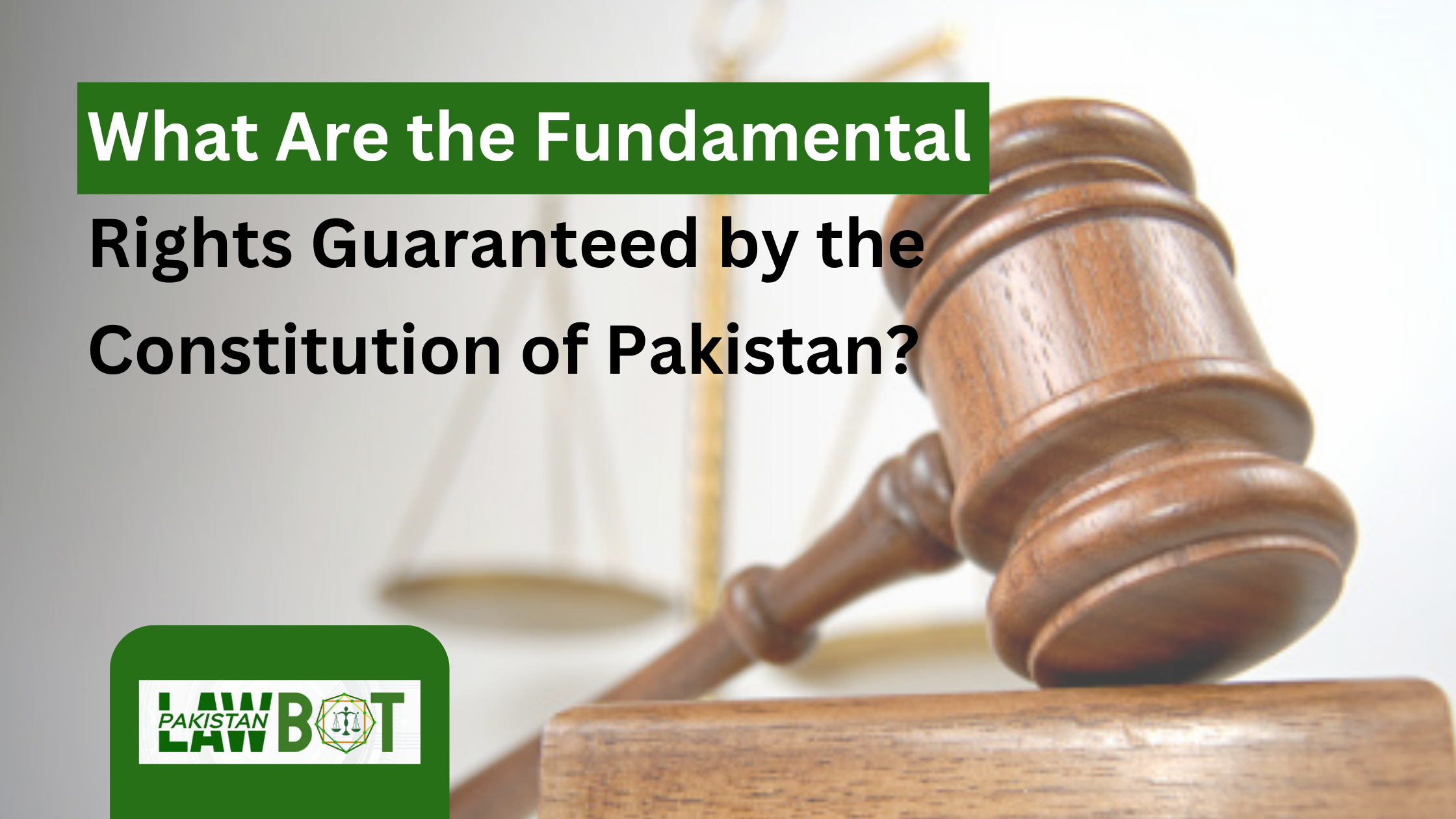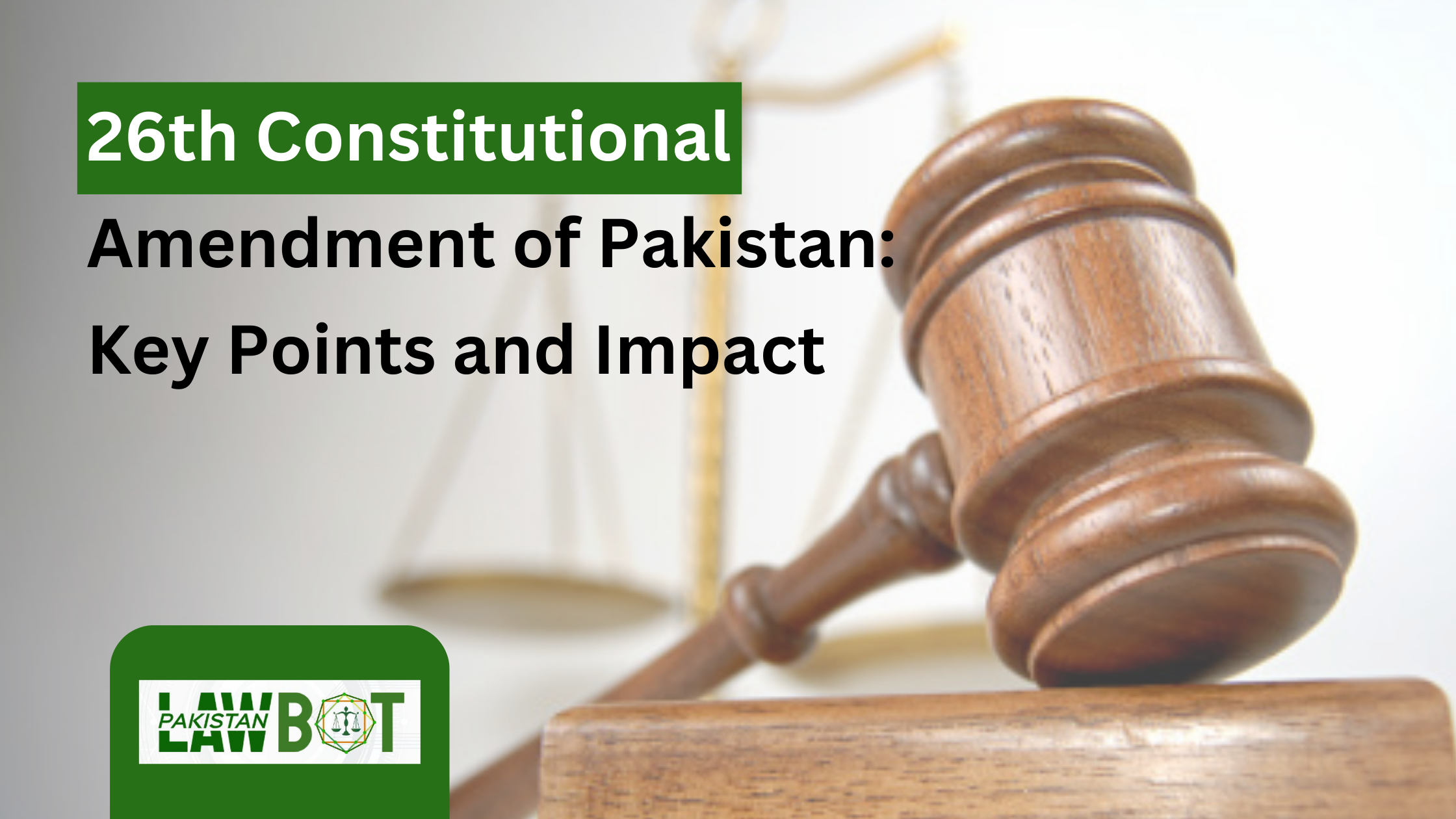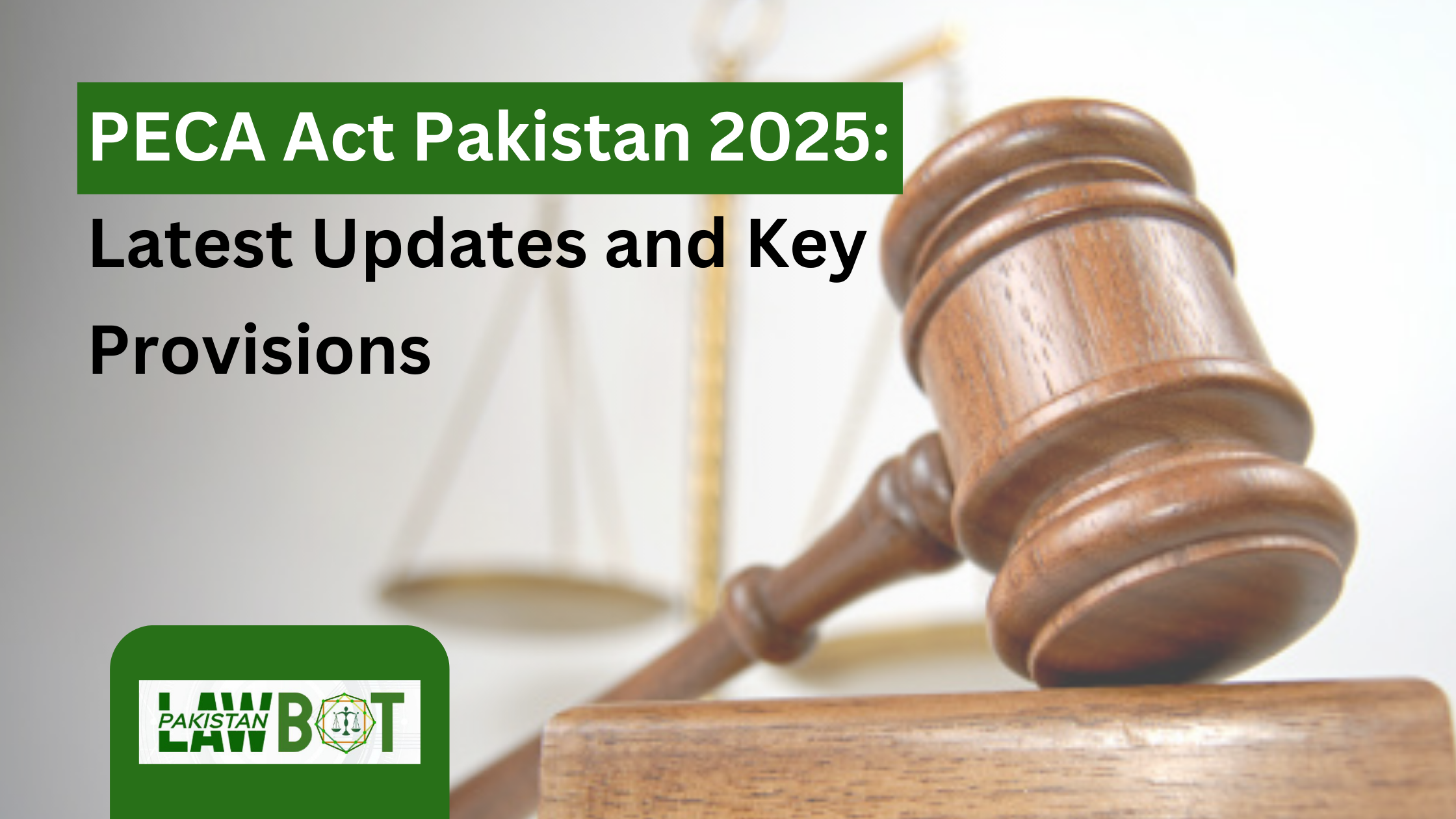Criminal law plays a vital role in maintaining justice, order, and security in any society. In Pakistan, the legal system has been undergoing significant reforms to address modern challenges and improve access to justice. Criminal law reforms aim to make the justice process faster, fairer, and more transparent, ensuring that citizens feel protected under the law.
This article examines the significant changes in Pakistan’s criminal law framework, the reasons behind these reforms, and their anticipated impact on individuals, society, and the justice system.
Why Criminal Law Reforms Are Needed
For decades, Pakistan’s criminal justice system has faced criticism for being slow, complex, and outdated. Ordinary citizens often struggle with lengthy trials, limited access to legal aid, and procedural hurdles.
Corruption, lack of accountability, and outdated colonial-era laws have also weakened trust in the system. Reforms are therefore necessary to:
-
Speed up trials and investigations.
-
Protect the rights of victims and the accused.
-
Incorporate technology into legal processes.
-
Strengthen institutions such as the police, prosecution, and judiciary.
Major Criminal Law Reforms in Pakistan
Introduction of Fast-Track Courts
One of the most important reforms is the establishment of fast-track courts. These courts focus on reducing the backlog of cases and ensuring that trials do not drag on for years.
By setting strict timelines, these courts aim to provide quicker justice in cases such as gender-based violence, terrorism, and corruption.
Use of Technology in Legal Proceedings
The digital transformation of the legal system is another major step. Video link hearings, online case management systems, and electronic documentation are being introduced to save time and reduce unnecessary delays.
These reforms also make it easier for witnesses to testify securely, particularly in sensitive cases where appearing in court could be dangerous.
Strengthening the Role of Prosecution
In the past, weak prosecution often led to acquittals even in strong cases. Reforms now focus on empowering prosecutors through enhanced training, improved resources, and strengthened accountability measures.
This change ensures that evidence is presented more effectively and that cases are not lost due to poor legal representation.
Victim-Centered Reforms
Victims of crime often feel neglected in Pakistan’s justice system. Recent reforms emphasize victim protection and rehabilitation.
Some measures include:
-
Ensuring confidentiality in sensitive cases.
-
Providing legal and psychological support to victims.
-
Creating mechanisms for victim compensation.
These steps make the system more humane and balanced.
Police Reforms and Accountability
Police are the first point of contact in criminal cases, yet public trust in law enforcement has often been low. Reforms now focus on:
-
Modernizing police training.
-
Introducing body cameras to ensure transparency.
-
Establishing independent complaint systems against misconduct.
By strengthening accountability, these changes aim to build trust between citizens and law enforcement agencies.
Bail and Pre-Trial Detention Reforms
A common criticism of Pakistan’s criminal justice system is the misuse of pre-trial detention. Many under-trial prisoners spend years in jail without conviction.
Reforms now seek to:
-
Limit unnecessary arrests.
-
Introduce clearer bail guidelines.
-
Protect the rights of the accused while ensuring public safety.
This balances fairness with justice and prevents overcrowding in prisons.
Impact of Criminal Law Reforms
Faster Justice Delivery
With fast-track courts and digital case management, the speed of justice delivery is expected to improve significantly. This means fewer delays and greater confidence in the justice system.
Protection of Fundamental Rights
By focusing on victims’ rights, bail reforms, and accountability, the new changes safeguard the fundamental rights of all citizens. These reforms ensure that both victims and accused persons receive fair treatment under the law.
Increased Trust in Institutions
Public trust in the justice system has historically been low. Transparent investigations, digitalization, and police accountability can help rebuild confidence in state institutions.
Economic and Social Benefits
A reliable legal system also supports economic growth. Investors and businesses are more likely to invest in a country where laws are enforced fairly. Socially, reforms reduce fear, promote stability, and encourage citizens to seek justice without hesitation.
Challenges in Implementing Reforms
While these reforms are promising, challenges remain. Some of the major issues include:
-
Lack of resources for courts and police.
-
Resistance from groups benefiting from the old system.
-
Slow adoption of technology in rural areas.
-
Need for consistent training for lawyers, judges, and prosecutors.
Addressing these challenges requires political will, continuous funding, and strong oversight.
Role of Citizens and Technology
Reforms alone cannot improve the system unless citizens actively participate. People must report crimes, cooperate with law enforcement, and demand accountability from institutions.
At the same time, technology-driven solutions such as Pakistan Law Bot can help bridge the gap between citizens and legal information. By providing instant access to laws, rights, and procedures, tools like Pakistan Law Bot empower individuals to navigate the justice system more confidently.
Looking Ahead
Criminal law reforms in Pakistan represent an important step toward building a fair and modern justice system. While challenges remain, the direction of these reforms is positive.
If implemented properly, these changes can transform the legal landscape, making justice accessible, timely, and transparent for every citizen.
Conclusion
Criminal law reforms in Pakistan are reshaping the justice system to meet the demands of a modern society. From fast-track courts and digital hearings to stronger victim protection and police accountability, these reforms hold the promise of a fairer and more efficient legal system.
The journey will not be easy, but with consistent effort, political will, and citizen involvement, Pakistan can move closer to a justice system that truly protects the rights of its people.
Explore More

